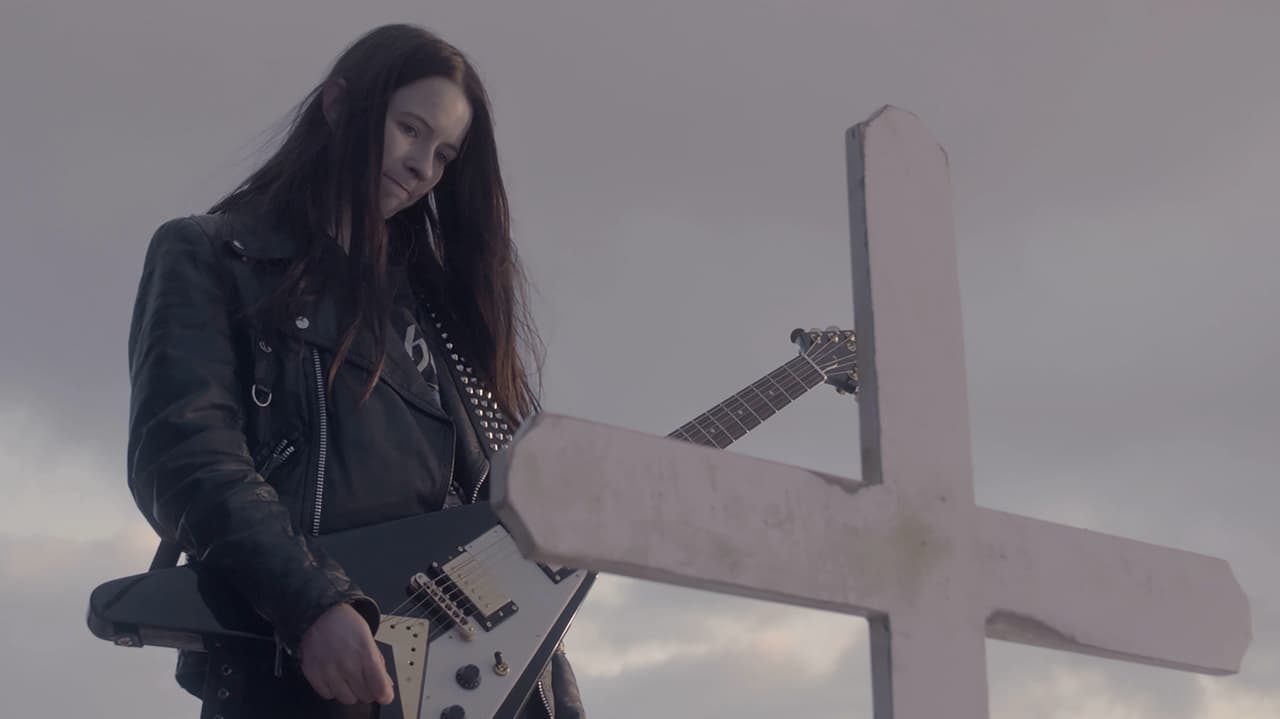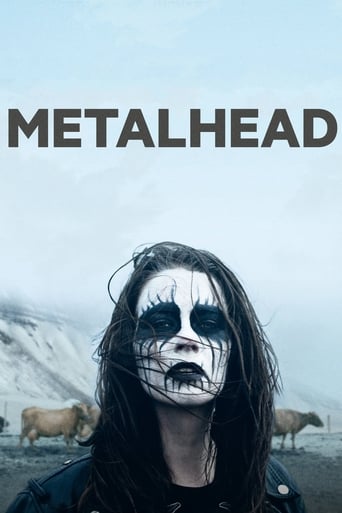Vikingbyheart
Films about family dramas are already common in the movie theater, but the choice of the Icelandic writer-director Ragnar Bragason (known for Bjarnfreðarson - 2009) to put the heavy metal in the foreground was an innovation, so Málmhaus (original title) or Metalhead (English title) stands out compared to other similar narratives. The story shows how the loss of a child in a tragic accident can affect the life of a family and also of a whole small community in rural Iceland. The protagonist of the plot is Hera, played by Þorbjörg Helga Þorgilsdóttir (known for Djúpið - The Deep - 2012), who witnessed the death of her older brother by a tractor when she was only 12 year old, in 1983. Traumatized, disillusioned with life and with her faith completely shaken, she decides to seek comfort in the heavy metal musical style that her brother loved so much.After this initial introduction, Bragason transports us to the early 90s, addressing the main character already in adulthood. With gloomy and melancholy appearance, always wearing a leather jacket and black clothes, Hera is now quite adept of the black metal way of life. She isolated herself from the outside world and is disconnected from the small community in which she lives. Her only moments of balance seem to be next to her guitar, with which she risks to compose her own musics, or when she listens to her cassette tapes or reads magazines in her room.The presence of Hera is disruptive to her parents. Unable to break free emotionally and psychologically from the memories of the tragedy, she lives committing petty crimes in self-destructive acts and causing confusion in the neighborhood. Her dressing style and her personality are also a painful form of her parents remember their dead child. This is reflected in the depression of her mother, Droplaug, played by Halldora Geirharðsdóttir (known for Englar alheimsins - Angels of the Universe - 2000 and Hross í oss - Of Horses and Men - 2013), and in the hidden suffering of her father, Karl, interpreted by Ingvar Eggert Sigurðsson (he acted in Englar alheimsins - Angels of the Universe - 2000, Myrin - Jar City - 2006, Hross í oss - Of Horses and Men - 2013 and Everest - 2015). Thus, each one experiences the grief and the pain in their own way, but it is clear that that accident compromised the family's harmony.With a peculiar intimate view of heavy metal and black metal movements, Bragason does in Metalhead a production with quite personal characteristics, printing throughout the script references carefully cited and associated with the soundtrack. It is through music that the director expresses and exposes the psychological and emotional state of the protagonist, from her feelings to her internal conflicts. Fans of the genre, besides the recognition of the songs, will delight in with Victim of Changes (Judas Priest), Heartless World (Teaze), Run For Your Life (Riot), Strange Wings (Savatage), Me Against the World (Lizzy Borden), Am I Evil? (Diamond Head), Symphony of Destruction (Megadeth), Í Helli Loka (Sólstafir) and Svarthamar (Pétur Ben & Þorbjörg Helga Þorgilsdóttir - Málmhaus).The symbolism is present throughout the film. The clothes, the music, the melancholy or obscurity, the corpse paint (face paint in black and white), death, religion, in scenarios such as the church or the cemetery, in the bitter cold of winter, and even in Norwegian characters, a reference to Øystein Aarseth (Euronymous) and Per Yngve Ohlin (Dead), founding members of the Norwegian black metal band Mayhem, land that created the subculture of the Norwegian black metal. Some documentaries address and depict this time, as Den Svarte Alvor - The Black Seriousness (1994), Satan Rir Media - Satan Rides the Media (1998), Once Upon a Time in Norway (2007) and Until the Light Takes Us (2008).Clinging to period details is another strong point of the film, giving it a certain nostalgia of the 80s and 90s. We have the record player and vinyl records, cassette tapes and walkman, household appliances, such as microwaves, cathode ray tube TV and VHS video tapes and cars, all faithfully depicting the period in question. The beautiful shots of Iceland and the moments of black humor soften the delicate issue addressed in the narrative, contrasting with the inner desolation of the protagonist. The performance of Þorbjörg Helga Þorgilsdóttir is one of the highlights of the movie, giving veracity to the story of the main character.Metalhead is a film that is based on a universal theme, music, employing it to show how people deal with pain, loss and suffering. The story shows the search for an identity and for oneself, an attempt to find meaning for life that goes beyond music.Originally posted in: https://vikingbyheart.blogspot.com.br
Alucard Venom
I wasn't sure what to expect from this movie. Title was either "hit or miss" and I was afraid it was going to be exploitation movie. But it's not.It was a great drama about how certain people deal with their pain, how people around them react to their, let's say unusual way of expressing their pain.Story fallows a young girl Hera who witnesses death (by accident) of her older brother. Few years after that, she still can't cope with pain of losing her brother, so she turns to metal music as a way of escapism. Naturally, living in small community, she is often misunderstood by others. She expresses her pain on her own "unique" way, while her parents express theirs on their own (father feeling accident was his fault, while mother has trouble moving on).Hera eventually goes on a self-destructive path because it's the only way she can deal with her loss and anger since no one can really understand how she feels. Good example of that scene is her best childhood friend who mistakes drunken sex for love, proposing to her, while she replies "Can't you see anything?"This is a movie about human nature, nature of pain, how certain people deal (or can't deal) with pain and loss of a loved one and how people sometimes judge people by it's cover.Guy who wrote a review here telling this movie is about "Jesus helping metalheads" just because it happens that movie has understandable priest (because you know, that can't happen in real life) clearly missed the point of the movie.This was never a movie about "Jesus helps metalhead". It was a movie about human nature. Hera never stopped being metalhead, it was just a hint that she and her parents are moving on eventually, because they, like rest of the community are starting to understand Hera.

